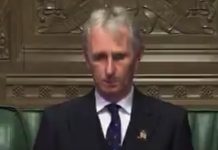New analysis published today (Thursday) by the TUC reveals that the UK has had one of the weakest growing economies in the OECD since the last general election in 2017.
Growth has been dragged down by lack of investment and a fall in exports, with nearly all other OECD nations outperforming the UK on both.
UK annual GDP growth averaged +1.3% between Q2 2017 and Q2 2019.This is less than half the average growth rate of +2.7% for other advanced nations. And the UK ranks in 31st place out of 35 OECD nations.On the back of an already dismal decade, growth over the past two years has slowed to less than half the long-term growth rate for Britain before the financial crisis (2.8%).
UK total investment fell at an annual average rate of -0.2% between Q2 2017 and Q2 2019.This compares to average growth of +3.4% across the rest of the OECD. And the UK ranks in 30th place out of 35 OECD nations.
Once public and housing investment is stripped out, UK business investment was even weaker over the period, falling at an annual rate of -1.3%.The TUC says a decade of austerity, Brexit mismanagement and a fragile global economy have meant a slump in business confidence.
UK exports fell at an annual average of -2.6% between Q2 2017 and Q2 2019.This compares to average growth of +3.4% across the rest of the OECD. And the UK ranks second to last – 34th out of 35 OECD nations.It is unusual to have falling exports growth outside of a recession.
The devaluation of the pound following the referendum on EU membership was expected to strengthen exports by making UK goods more affordable. But the reverse has happened.The TUC says it is concerned that sustained low investment is damaging the competitiveness of UK goods and services.
The dismal performance of the UK economy over the past two years comes on top of the severe hardship of the austerity decade.
The TUC says that Britain’s workforce is paying the price, not only of austerity since 2010, but also of the government’s poor management of the economy since 2017.
The prolonged weakness of GDP growth has resulted in the longest wage slump for two centuries, with the average weekly wage still worth £14 less than before the financial crisis.
Lack of investment and a decade of austerity have both played a part in holding back wage growth. And the government’s failure to give workers proper wage bargaining powers has kept the economy rigged against working-class people.
TUC General Secretary Frances O’Grady said:
“The UK economy has fallen into the relegation zone – and you have to blame the manager. The current government is leaving the economy in a dismal state.
“When Britain needed to invest, they chose corporate tax cuts. And when Britain needed to rebuild, they chose more austerity.
“Next month’s election is a chance for change. Are we going to rebuild Britain? Or will workers be squeezed again while tax cuts are given to the rich?
“Leadership is about more than just looking after your wealthy mates. We need leaders who will take on the UK’s rigged economy. And we need a plan for world-class public services, modern industry and decent jobs.”







